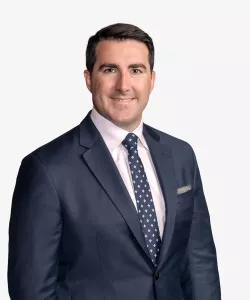Another One Bites the Dust: Court Tosses Nearly $350 Million False Claims Act Verdict Under Escobar
A federal district court in Florida earlier this month reversed a jury verdict and vacated a $350 million False Claims Act award, joining the growing number of courts to strictly apply the materiality standard set by the US Supreme Court in United States ex rel. Escobar v. Universal Health Services, 136 S. Ct. 1989 (2016).
Together with the Fifth Circuit’s recent decision in United States ex rel. Harman v. Trinity Industries Inc., this amounts to more than $1 billion in FCA verdicts tossed by courts over the last four months based on Escobar—an amount equal to more than a quarter of all FCA recoveries in FY 2017 combined.
In the recent case in Florida, United States ex rel. Ruckh v. Salus Rehabilitation, LLC, 8:11-cv-1303-T-23TBM, 2018 WL 375720, *1 (M.D. Fla. Jan. 11, 2018), the district court held that the qui tam relator (i.e., whistleblower) failed to prove that defendants, owners, and operators of a system of nursing-home facilities violated the FCA. Specifically, the court determined that the relator failed to adduce evidence consistent with Escobar that defendants’ misrepresentations to Medicare and Medicaid were material—or that defendants knew they were material—to the Government’s payment decision. At trial, the relator convinced the jury of two fraud schemes—first, that the defendants fraudulently up-coded Resource Utilization Group (“RUG”) levels, thereby misrepresenting to Medicare the amount of care and appropriate reimbursement amounts; and second, that defendants failed to create and maintain comprehensive-care plans required for Medicaid reimbursement. Following the jury’s verdict and award, defendants moved for judgment as a matter of law, contending that the relator failed to prove sufficient evidence of materiality under Escobar. The district court, in an opinion by Judge Merryday, agreed.
In reversing the judgment, the court emphasized the Supreme Court’s discussion in the Escobar opinion of the materiality requirement. In Escobar, the Court held that “liability can attach [under an implied-false-certification theory] when the defendant submits a claim for payment that makes specific representations about the goods or services provided, but knowingly fails to disclose the defendant’s noncompliance with a statutory, regulatory, or contractual requirement.” But the FCA’s materiality standard is “rigorous” and “demanding,” the Court added, as the FCA is not “an all-purpose fraud statute.” The Court further explained that evidence that the Government consistently refuses to pay claims when it knows about noncompliance with a requirement may be proof that compliance was material, whereas evidence that the Government pays despite knowledge of noncompliance is “very strong evidence” that the requirement was not material.
In addition to Escobar, the district court also relied on United States ex rel. Harman v. Trinity Industries Inc., 872 F.3d 645 (5th Cir. 2017), where the Fifth Circuit recently reversed a $660 million FCA jury award due to lack of materiality, because the relevant federal agency, the FHWA, had full knowledge of the relator’s allegations but nevertheless maintained the “unwavering position” that the guardrail systems the defendant sold to states were eligible for federal reimbursement. The Fifth Circuit denied rehearing en banc in Harman, but the relator’s deadline to petition for Supreme Court review has not yet lapsed.
Applying the principles from Escobar and Harman, the district court in Ruckh found lacking both materiality and the defendants’ knowledge of materiality. Referring to the alleged fraud as “a handful of paperwork defects,” the court reasoned that the relator relied on lay-witness opinion testimony—rather than expert testimony—and failed to establish that the federal or state governments would have denied payment “when confronted with a record-keeping deficiency or any other deficiency by a health care provider engaged in actively providing qualified and essential health care” to numerous patients across the State of Florida. The court also took aim at the scale of the fraud alleged by the relator, explaining that the relator had “aggressively” turned the case into a “systemic dispute that forces a systemic challenge that requires systemic answers” on the question of materiality, and characterizing the relator’s statistical sampling as “sparse and attenuated.” Finally, the court held that the evidence failed to support the inference that the management-company defendant caused false claims to be submitted, reasoning that “a scattering of claims in a smattering of facilities is a wholly insufficient basis from which to infer” a corporate fraud scheme.
The Ruckh decision continues a trend of post-Escobar rulings that strictly apply the materiality standard in FCA cases, and, if the relator appeals, provides an opportunity for the Eleventh Circuit to weigh in on Escobar’s post-trial application. If the relator appeals, she will likely contend that the district court improperly substituted the jury’s findings and inferences with its own, and, in contrast to Harman’s much-longer and footnoted opinion, did not specifically cite to the record or find that the Government knew about the purported misrepresentations when it paid claims. The Eleventh Circuit’s decision could further bolster the Harman decision, or alternatively provide a split regarding Escobar’s proper post-trial application.
Such an appeal could also present an opportunity for the Eleventh Circuit to comment on the appropriateness of Statements of Interest (“SOI”) filed by the Government in FCA cases in which the Government has declined intervention. The Government, which declined intervention in the case, sought unopposed leave to file an SOI in response to the defendants’ motion for judgment as a matter of law—a practice that has become routine for the Government in FCA cases involving significant questions of law. The court denied leave, however, holding that 28 U.S.C. § 517 does not give the Government an absolute right to file SOIs in qui tam cases. The court concluded: “[A]bsent intervention, the United States cannot gratuitously compound the post‑judgment argument by belatedly ‘weighing in’ on behalf of the relator (and the $350 million).” On appeal, the relator may seize on this ruling to argue that the district court overstepped when reversing the jury verdict and award.
The district court’s decision in Ruckh underscores the continued importance that the materiality standard plays in evaluating and proving FCA liability. Consequently, companies that operate in highly regulated industries that benefit from government expenditures—such as health care or government contracting—should whenever possible maintain records that evince government knowledge of and/or acquiescence to possible noncompliance with statutory, regulatory, or contractual requirements. With evidence that such requirements are not material, defendants may successfully obtain dismissal of FCA claims under Escobar, even post-trial.
Contacts
- Related Industries
- Related Practices
-
Read Time
8Minutes


